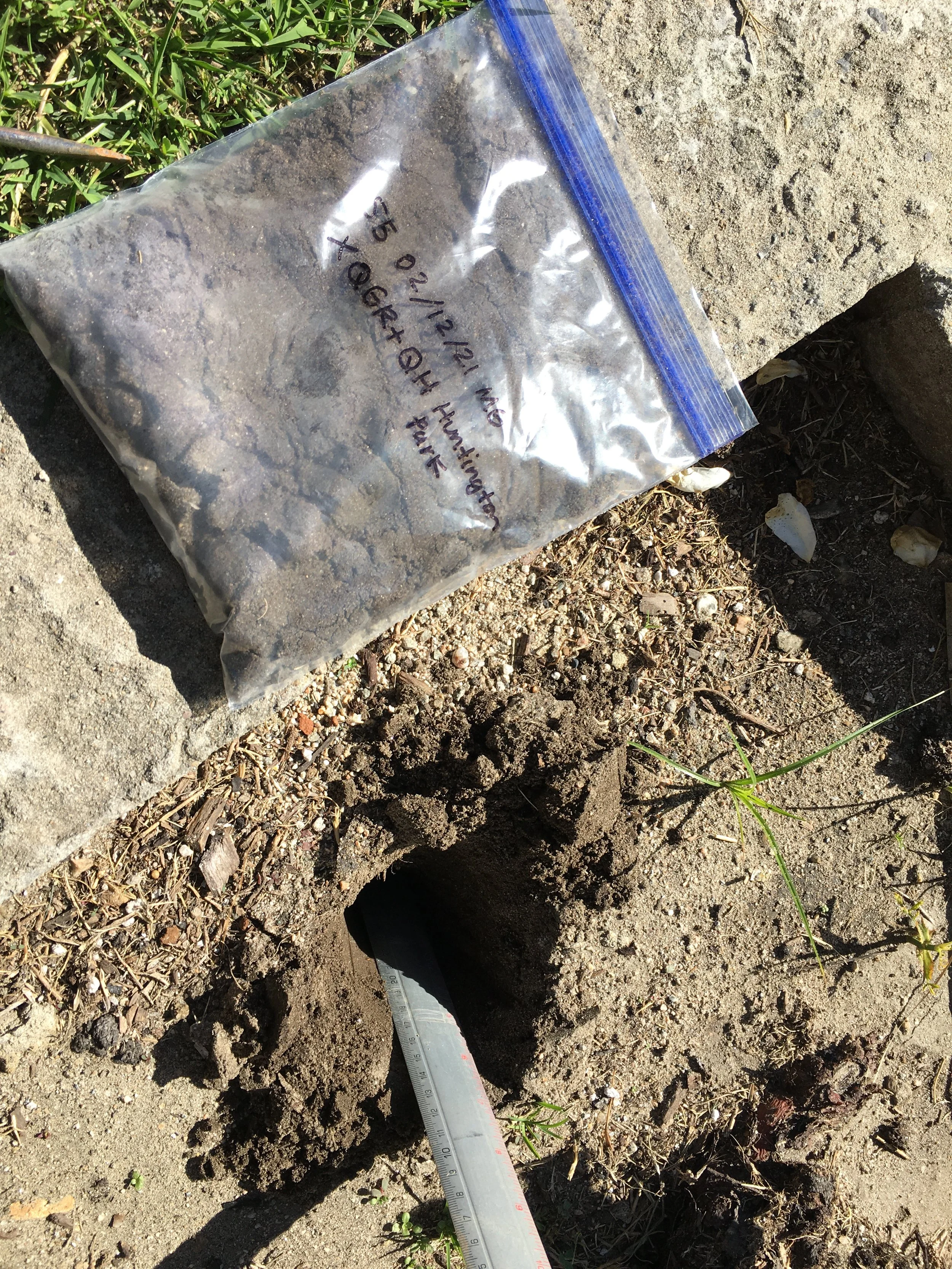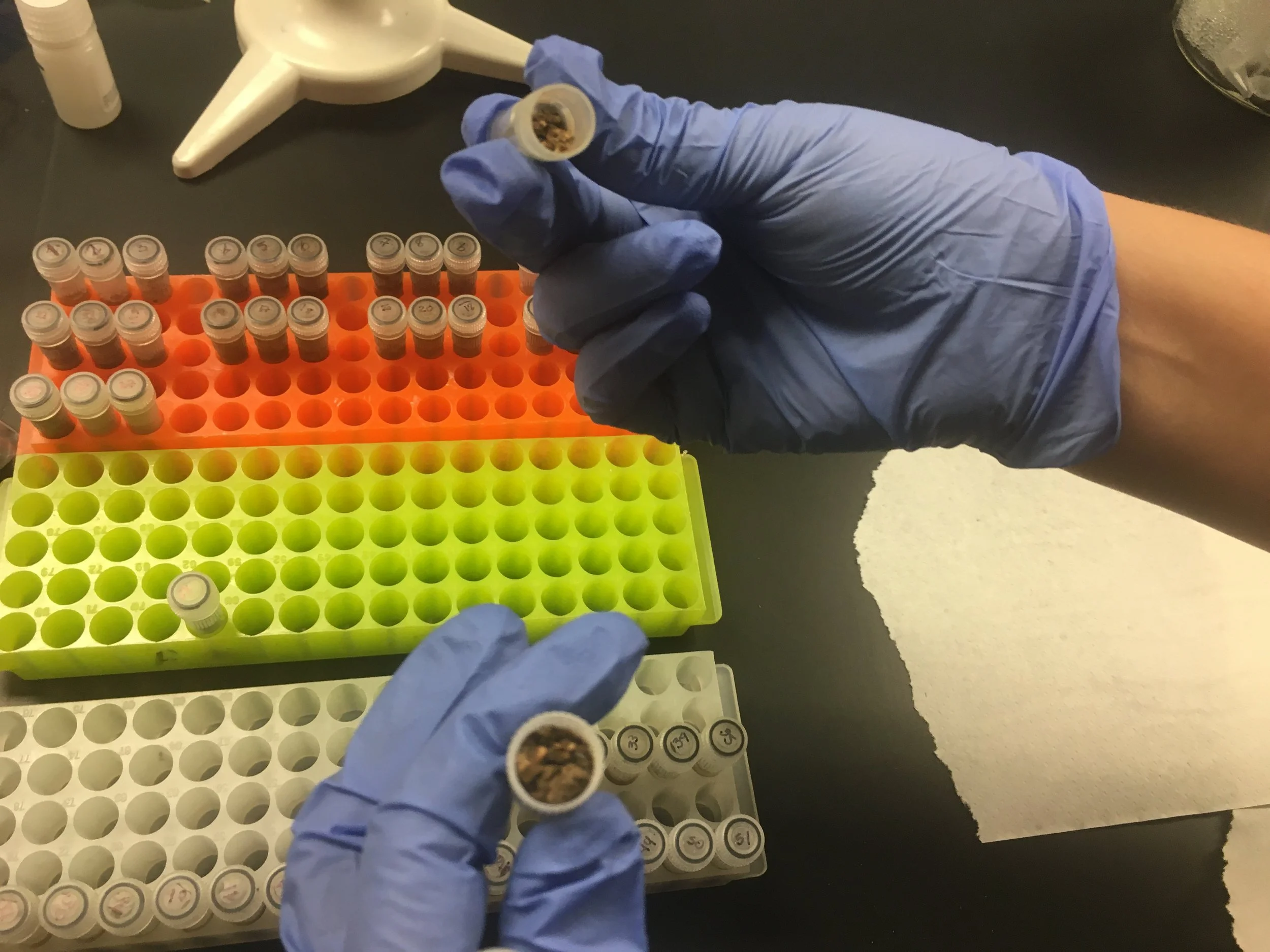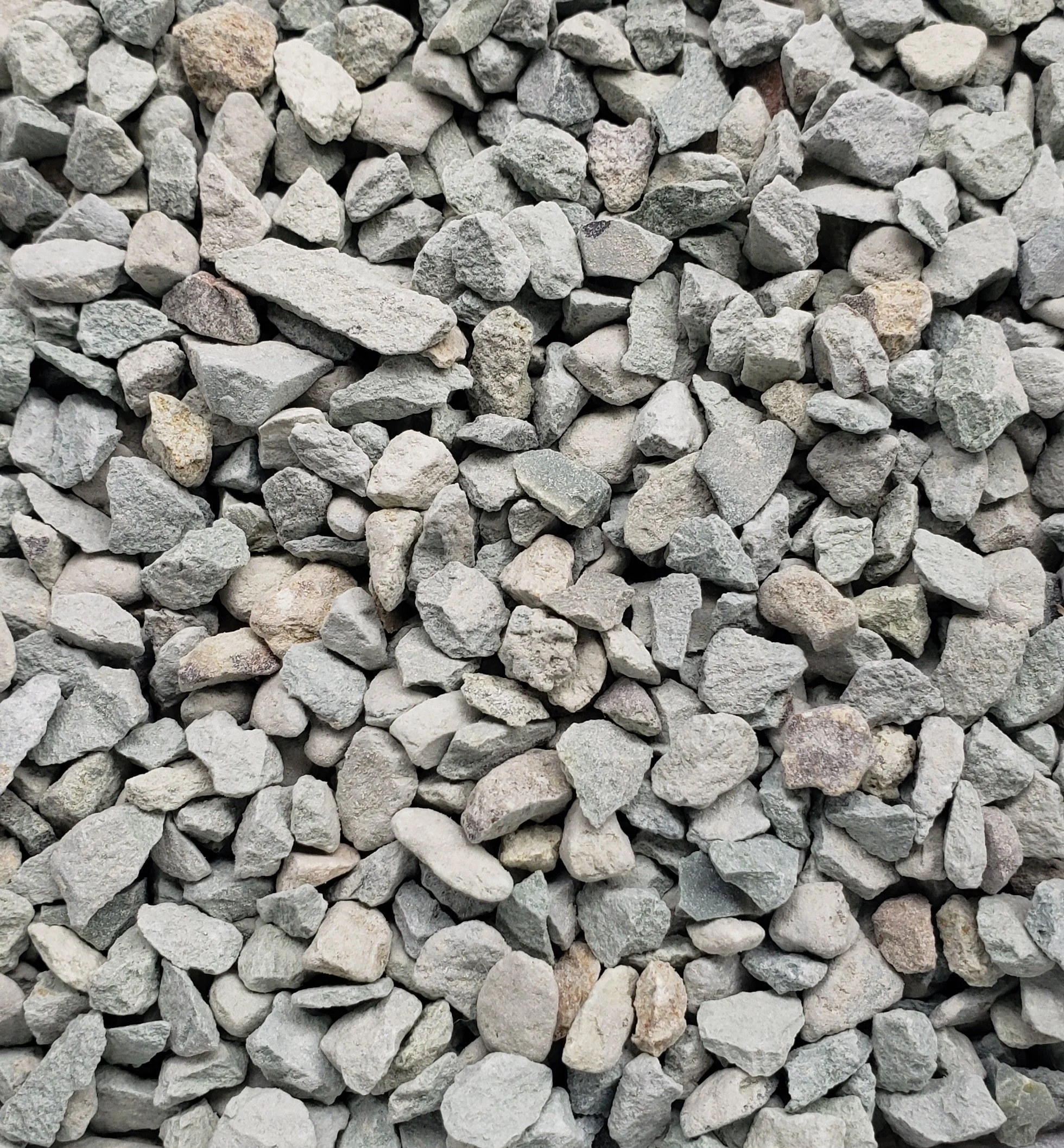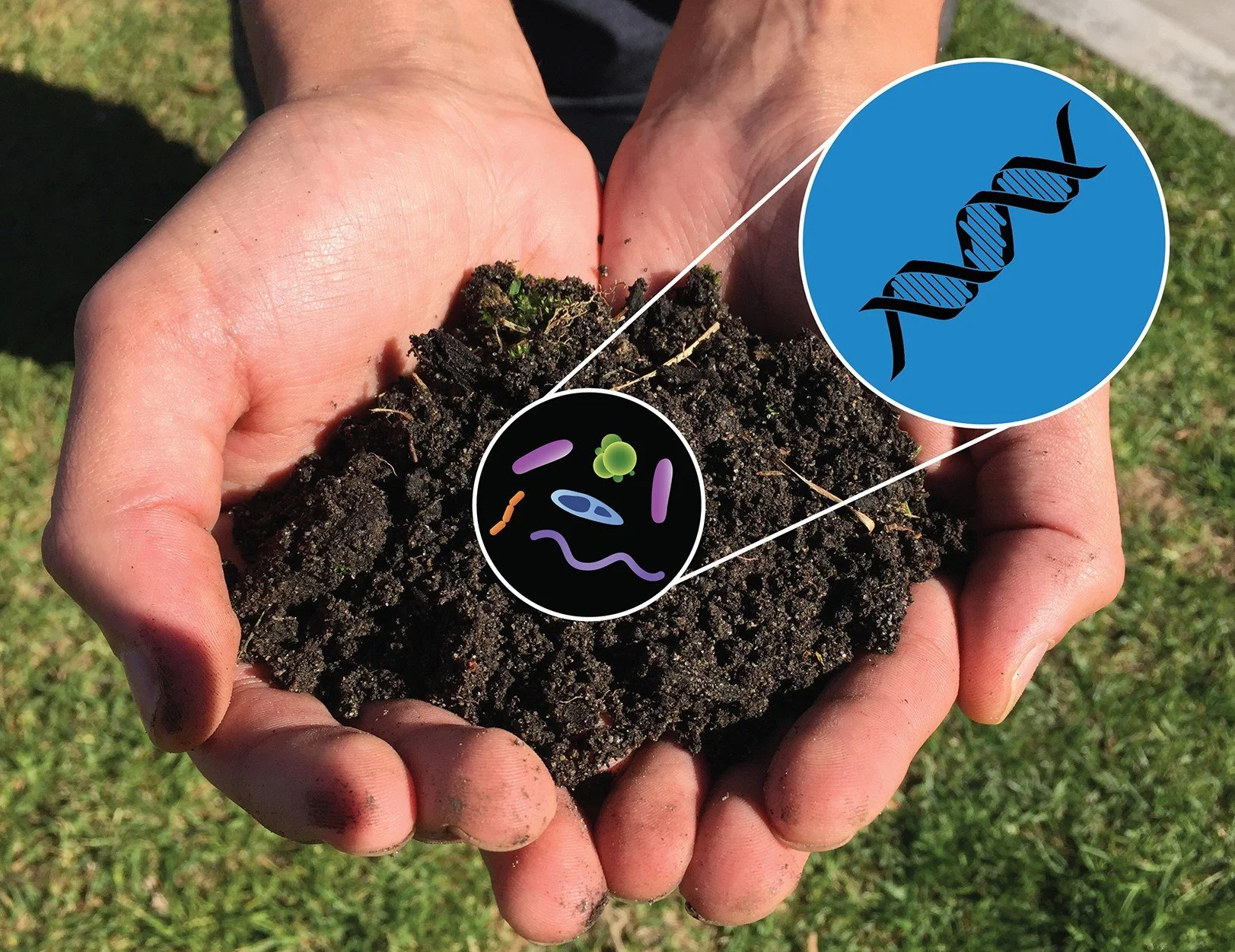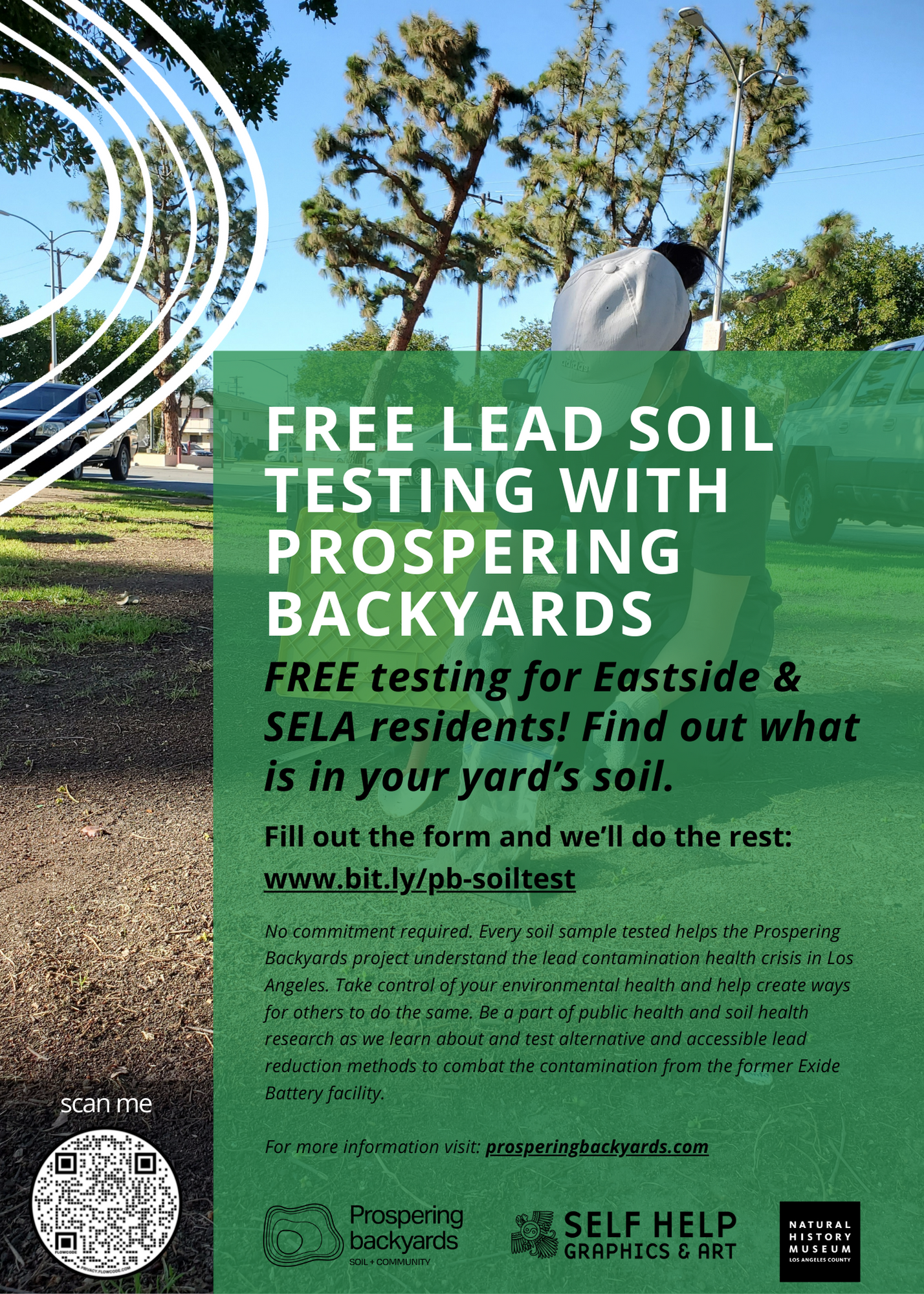
The Project
Prospering backyards
Research and Community Science
This is a collaborative scientific research between community scientists from the affected community, artists, activists, and scientists, to develop an alternative method for reducing lead exposure in contaminated backyards while considering the health of the soil and the environment.
Objectives:
Holistic approach: Respect to the land. The solutions need to be safe for humans and safe for the environment. That is why we are considering soil health and the microbial communities that live there too.
Open source: To be able to share this process and develop a DIY soil healing kit free and open to the public.
Collaboration: To partner with other initiatives and organizations that already are working to inform, research, or want to remediate the contaminated area.
Taking action: To research and propose concrete actions to reduce lead exposure using natural and low-cost materials that we can apply to our own backyards.
Capacity building: To create a community that helps other community members to learn more about lead contamination and how to protect our families.
Facilitate lead stabilization while waiting for the government cleanup: We want to propose an alternative especially for families whose properties are not on the priority list.
How are we doing this?
-
1. Developing the sampling and analyzing methods for lead and microbial biodiversity in the affected areas.
(2021)
These analyses will help us determine if the method is effective in reducing lead exposure and if there are changes in soil biodiversity.
-
2. Developing easy to use laboratory-quality methods with common materials (minerals, mulch, other natural options) that can act as a barrier and container to lead, reducing our exposure and preserving our health.
(2021- 2022)
We are testing the application of minerals like zeolites. These are naturally occurring and have the capacity of “trapping lead”.
-
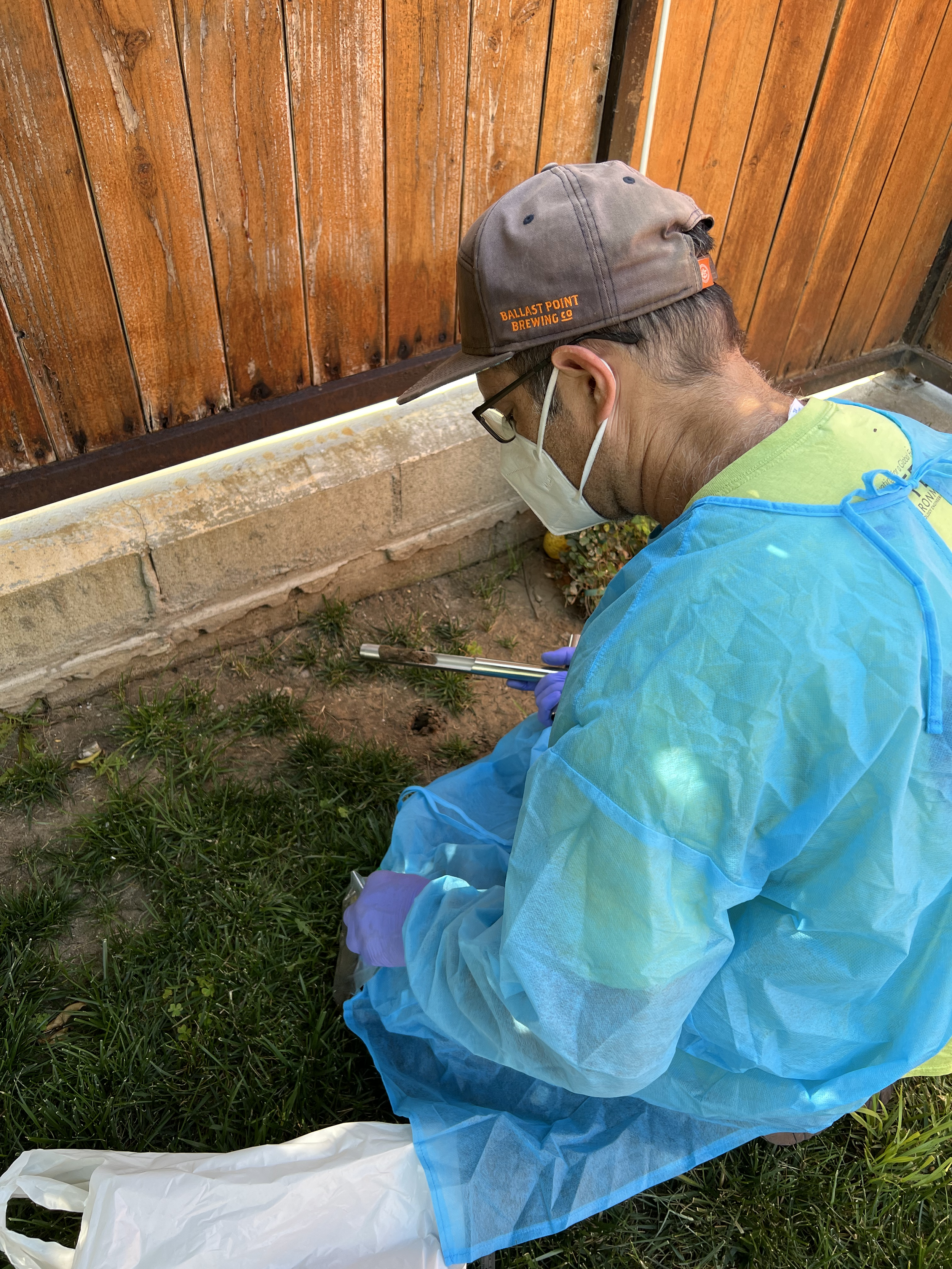
3. Offering free soil testing for community members in the research area
(2022)
During the Summer of 2022, we offered free soil testing for community members that wanted to know about the lead levels in their yards.
We plan to have a second sampling season in 2023.
-
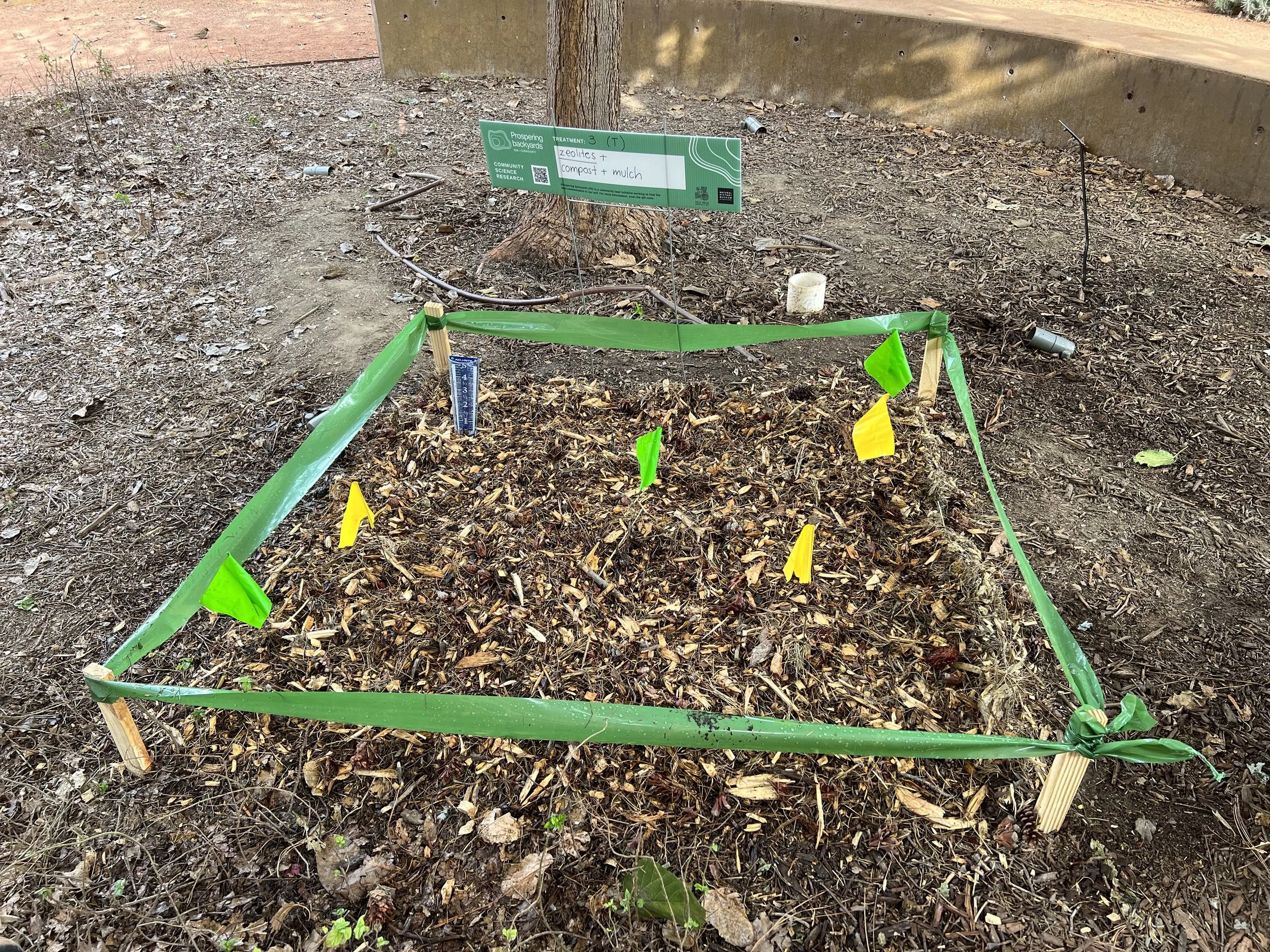
4. Assembling and training a team of Community Scientists who will test these health-saving methods in their own backyards.
(2022- 2023)
From the results obtained during the sampling season, 15 community members received an invitation to be part of the Community Scientists (CS) team. The CS received training and are directly participate in the collaborative research process. This is key for assuring that we find better solutions for the rest of the community.
Prospering backyards study area
View the location of the Exide Facility (red), the area the government is working in to remove lead (yellow), and the neighborhoods included in the Prospering Backyards project study area (green).
Boyle Heights: 90033 / East Los Angeles: 90022, 90023, 90063 / South East LA: 90058, 90270, 90201, 90202, 90255, 90040
The Science behind the project
Lead remediation
The current cleaning approach by the government is to completely remove the contaminated soil and replace it with clean soil. This process is effective, but very costly because it involves transportation and replacement, and the soil is still contaminated at its landfill dumpsite.
An alternative method that we want to propose and analyze is the use of the mineral ‘zeolite’, which is naturally occurring and safe for human exposure. This mineral has shown the ability to ‘encapsulate’ lead, making it not harmful to humans when applied to the soil.
-
Zeolites are minerals made from Aluminium, Silicon, and Oxygen. They are characterized by having a porous structure that can accommodate a wide variety of ions.
-
In the case of lead, they can act as “sieves”, selectively trapping lead. Lead encapsulated in this porous structure is no longer toxic for humans.
-
We are evaluating the application of pulverized zeolites directly on top of contaminated soil: spreading, without tiling.
Zeolites have been shown to be not harmful to humans and ecosystems.
Soil biodiversity
-
Soil is the foundation for healthy ecosystems and plays an important role in sustaining life. Soil serves as the baseline for life and provides a variety of ecosystems and societal functions. Despite sustaining the world’s demands of food, fibers, and fuels, regulating Earth’s air and water quality, and storing greenhouse gases, the value of soil, commonly termed “dirt”, is often dismissed. This human disconnect from this important source of life, especially in the middle of our climate crisis, needs to be addressed as a vital sustainability practice.
-
Soil health is largely dependent on a diverse thriving organism composition. This world of organism biodiversity (diversity of life) is formed by microorganisms (e.g. bacteria, fungi, protozoa, and nematodes) and mesofauna (e.g. acari and springtails), as well as the more familiar macro-fauna (e.g. earthworms and termites).
-
Soil organisms can be detected, enumerated, and characterized through advancement in molecular methods such as the use of Environmental DNA (eDNA). This tool takes advantage of DNA found in the environment, from organisms in the form of feces, skin cells, pollen, whole cells (microbes) that can then be collected from soil, sediment, water, and even air! We can use the eDNA from the sample to obtain information on the organisms found in soil from microbes, plants, and vertebrates.
CREDIT: Abrahim El Gamal here
More information about the project
Do you want to be part of the Pb Community Science project?
Take control of your environmental health and help create ways for others to do the same. Be a part of public health and soil health research as we learn about and test alternative and accessible lead reduction methods to combat the contamination from the former Exide Battery facility.
Develop a lead containment process with the Prospering Backyards team of researchers and community scientists to reduce lead exposure in your neighborhood.
The project consists of 3 working meetings, sampling, and installation of the test stations in a span of a year. Training will include safety precautions.
Participation does not require extensive landscaping or disturbing the soil.
All necessary materials will be provided.
Participants will receive a certificate at the end of the 12-month program plus other incentives and will be qualified to train more prospective community scientists.
Join the Prospering Backyards team and be a part of research to make our neighborhoods safer and healthier for us all!
Soil sampling request. Sign up!
The soil sampling season is closed now. Please be sure to look for more opportunities to participate in 2023.

